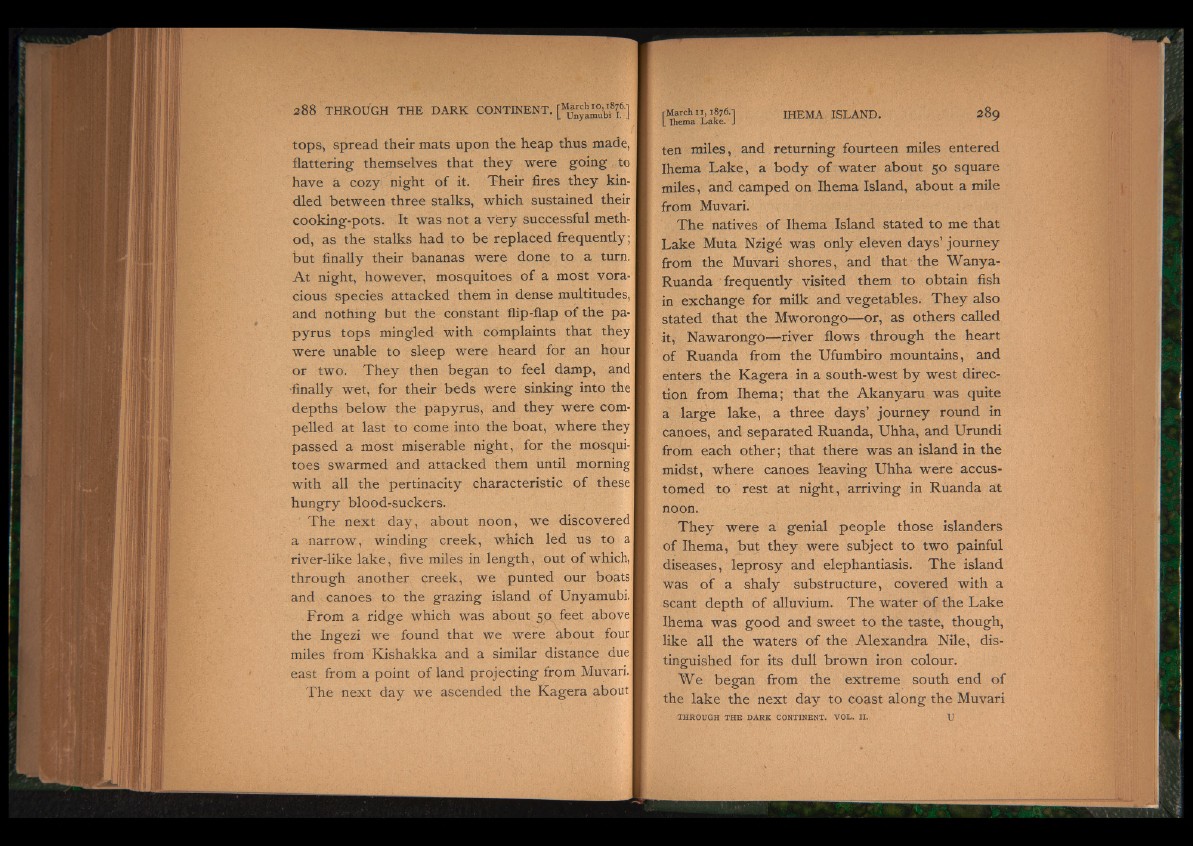
I I I II
■
H i
tops, spread their mats upon the heap thus made,
flattering themselves that they were going to
have a cozy night o f it. Their fires they kindled
between three stalks, which sustained their
cooking-pots. It was not a v e ry successful meth- j
od, as the stalks had to be replaced frequently ; j
but finally their bananas were done to a turn.
A t night, however, mosquitoes o f a most voracious
species attacked them in dense multitudes,\
and nothing but the constant flip-flap o f the pa- j
pyrus tops mingled with complaints that they
were unable to sleep were heard for an hour
or two. T h e y then began to feel damp, and
finally wet, for their beds were sinking into the
depths below the papyrus, and they were com-|
pelled at last to come into the boat, where they ]
passed a most miserable night, for the mosquitoes
swarmed and attacked them until morning I
with all the pertinacity characteristic o f these ]
hungry blood-suckers.
The next day, about noon, we discovered I
a narrow, winding creek, which led us to a
river-like lake , five miles in length, out o f which,
through another creek, we punted our boats!
and canoes to the grazing island o f Unyamubi.
From a ridge which was about 50 feet above
the Ingezi we found that we were about four!
miles from Kishakka and a similar distance due j
east from a point o f land projecting from Muvari.
T he next day we ascended the ICagera about ]
ten miles, and returning fourteen miles entered
Ihema L ak e , a b od y o f water about 50 square
miles, and camped on Ihema Island, about a mile
from Muvari.
T he natives o f Ihema Island stated to me that
Lake Muta Nzige was only eleven days’ journey
from the Muvari shores, and that the Wanya-
Ruanda frequently visited them to obtain fish
in exchange for milk and vegetables. T h e y also
stated that the Mworongo— or, as others called
it, Nawarongo— river flows through the heart
of Ruanda from the Ufumbiro mountains, and
enters the Kagera in a south-west b y west direction
from Ihema; that the Akanyaru was quite
a large lake, a three days’ journey round in
canoes, and separated Ruanda, Uhha, and Urundi
from each other; that there was an island in the
midst, where canoes leaving Uhha were accustomed
to rest at night, arriving in Ruanda at
noon.
T h e y were a genial people those islanders
o f Ihema, but they were subject to two painful
diseases, leprosy and elephantiasis. T h e island
was o f a shaly substructure, covered with a
scant depth o f alluvium. The water o f the Lake
Ihema was good and sweet to the taste, though,
like all the waters o f the Alexandra Nile, distinguished
for its dull brown iron colour.
W e began from the extreme south end o f
the lake the next day to coast along the Muvari
THROUGH THE DARK CONTINENT. VOL. II. U